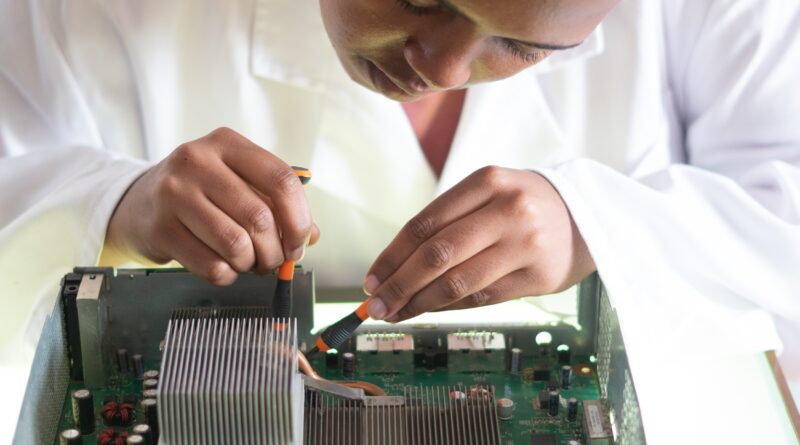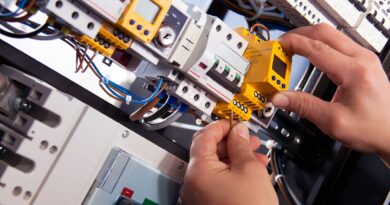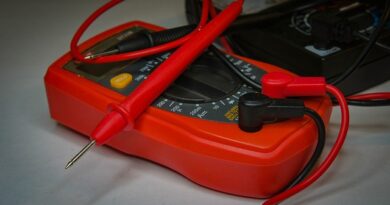Performance Matters: How Electrical Testing Experts Ensure Safety and Reliability in Delhi
Introduction
In the bustling city of Delhi, electrical systems play a crucial role in ensuring the smooth functioning of various establishments, ranging from homes and offices to industries and infrastructure. The safety and reliability of these electrical systems are of paramount importance to prevent accidents, minimize downtime, and safeguard the well-being of individuals. This article delves into the significance of electrical testing and explores how electrical testing experts in Delhi contribute to maintaining optimal performance, safety, and reliability.
1. Understanding Electrical Testing
Electrical testing refers to the systematic evaluation of electrical systems, equipment, and components to assess their performance, integrity, and compliance with safety standards. It involves a series of tests and measurements to identify potential faults, weaknesses, or deviations from acceptable parameters.
2. The Importance of Electrical Testing
Ensuring the safety and reliability of electrical systems is crucial to prevent electrical hazards, fires, and equipment failures. Electrical testing plays a vital role in identifying potential risks, such as faulty wiring, insulation breakdown, or inadequate grounding, which could lead to electrical shocks, short circuits, or even electrocution.
Additionally, regular electrical testing helps maintain the overall performance and efficiency of electrical systems, preventing unexpected downtime, disruptions, and costly repairs. It provides valuable insights into the condition of electrical equipment and enables proactive maintenance and troubleshooting.
3. Types of Electrical Tests
To comprehensively evaluate electrical systems, various types of tests are conducted by electrical testing experts. Here are some essential tests commonly performed:
3.1 Insulation Resistance Test
The insulation resistance test measures the integrity of insulation materials used in cables, wires, and electrical equipment. It helps identify insulation breakdowns, leaks, or dampness that can lead to short circuits or electrical leakage.
3.2 Earth Resistance Test
The earth resistance test assesses the effectiveness of the grounding system, ensuring the proper dissipation of fault currents into the ground. It helps detect inadequate grounding, which can result in electric shocks and damage to equipment.
3.3 Polarity Test
The polarity test checks the correct wiring and connection of electrical outlets, switches, and appliances. It ensures that the live, neutral, and ground wires are correctly positioned, reducing the risk of electric shocks and electrical malfunctions.
3.4 Continuity Test
The continuity test verifies the integrity of electrical circuits and connections. It checks for breaks, loose connections, or damaged conductors that may cause interruptions or overheating.
3.5 Load Testing
Load testing assesses the capacity and performance of electrical systems under normal or heavy loads. It helps identify voltage drops, excessive heating, or abnormal behavior, ensuring the system can handle the required electrical demand.
4. Ensuring Safety through Electrical Testing
Electrical testing plays a pivotal role in ensuring the safety of individuals, buildings, and equipment. By identifying potential hazards, such as faulty wiring, defective insulation, or improper grounding, electrical testing experts can recommend timely repairs or upgrades to mitigate risks. Regular testing minimizes the chances of electrical accidents, protects lives, and prevents property damage.
5. Ensuring Reliability through Electrical Testing
Reliability is essential for uninterrupted operations in various sectors, including residential, commercial, and industrial. Electrical testing experts employ advanced techniques and technologies to assess the condition of electrical systems, detecting early signs of degradation, wear, or imminent failures. By identifying and rectifying issues proactively, they ensure the reliability of electrical systems, minimizing unexpected downtime and maximizing productivity.
6. Compliance with Standards and Regulations
Electrical testing is crucial to comply with local and international safety standards and regulations. In Delhi, electrical systems must adhere to the guidelines set by the Bureau of Indian Standards (BIS), the Central Electricity Authority (CEA), and other relevant authorities. Regular testing ensures that electrical installations meet the necessary standards, promoting a safe and reliable environment for occupants.
7. Advanced Testing Techniques and Technologies
To stay ahead of emerging challenges and ensure thorough evaluations, electrical testing experts in Delhi utilize advanced techniques and technologies. Here are some notable examples:
7.1 Thermographic Imaging
Thermographic imaging, also known as infrared thermography, captures and analyzes the thermal patterns of electrical components. It helps identify overheating, loose connections, or excessive resistance, enabling early intervention before critical failures occur.
7.2 Power Quality Analysis
Power quality analysis involves monitoring and analyzing electrical parameters to assess the quality of the supplied power. It helps identify issues such as voltage fluctuations, harmonic distortions, or power factor imbalances that can affect equipment performance and efficiency.
7.3 Partial Discharge Testing
Partial discharge testing detects electrical discharges within insulation materials that could lead to breakdowns or equipment failures. By identifying and addressing partial discharge activities, electrical testing experts prevent catastrophic failures and extend the lifespan of electrical assets.
8. Benefits of Regular Electrical Testing
Regular electrical testing offers numerous benefits, including:
- Enhanced safety for occupants and electrical personnel
- Minimized risk of electrical accidents, fires, and disruptions
- Improved reliability and performance of electrical systems
- Early detection of faults and timely repairs, reducing downtime
- Compliance with safety standards and regulations
- Optimal utilization of electrical equipment and resources
- Prevention of costly repairs or replacements due to major failures
- Longevity and longevity of electrical assets
9. Choosing the Right Electrical Testing Service
When selecting an electrical testing service in Delhi, consider the following factors:
- Experience and expertise in electrical testing
- Accreditation and compliance with relevant standards
- Availability of advanced testing equipment and technologies
- Track record of timely and accurate testing results
- Positive customer reviews and testimonials
- Competitive pricing and transparent service agreements
By choosing a reputable and reliable electrical testing service, you can ensure the safety and reliability of your electrical systems.
Conclusion
In Delhi, the performance, safety, and reliability of electrical systems are of utmost importance to prevent accidents, ensure smooth operations, and comply with regulations. Electrical testing experts play a pivotal role in assessing and maintaining the integrity of electrical installations. Through a comprehensive range of tests, advanced techniques, and adherence to standards, they identify potential risks, rectify faults, and ensure the optimal performance of electrical systems.




